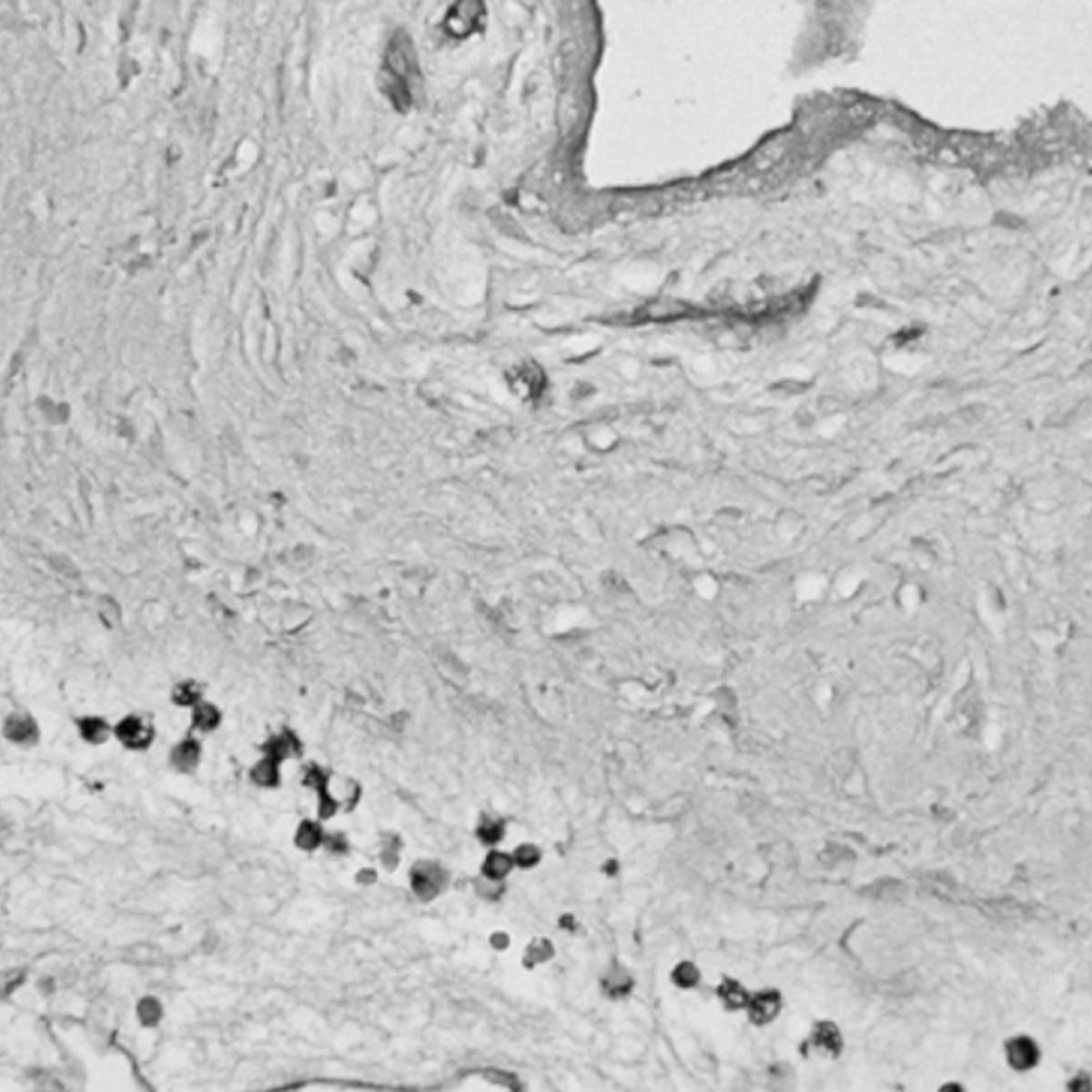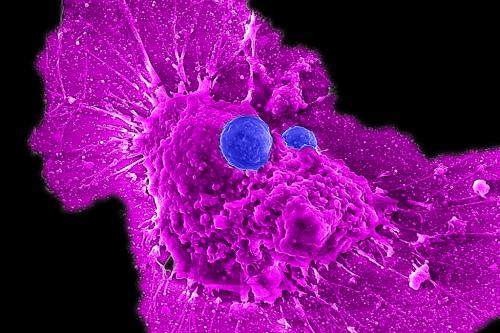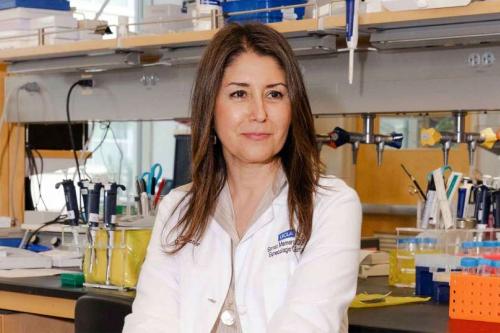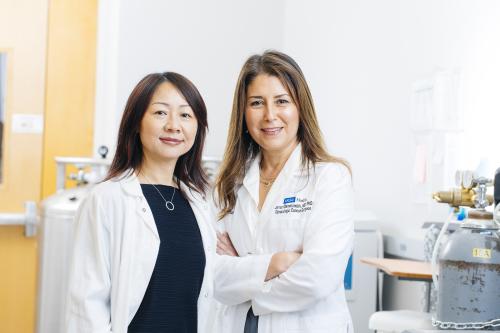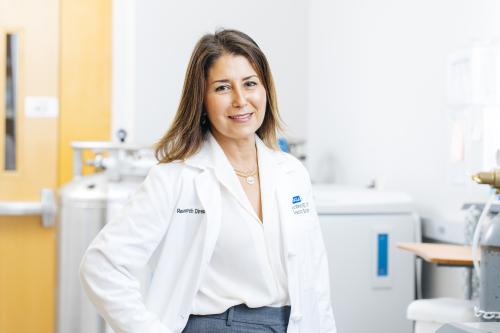
Sanaz Memarzadeh, M.D., Ph.D.
- Professor, Obstetrics and Gynecology
- Director, G.O. Discovery Laboratory

Sanaz Memarzadeh, M.D., Ph.D., is a gynecologic oncologist who specializes in the prevention, diagnosis and treatment of gynecologic diseases. Her research focuses on understanding the molecular pathways of ovarian and endometrial cancers and developing new, more effective therapies to help patients.
When she isn’t practicing as a surgeon, Memarzadeh is conducting research to advance our understanding of gynecologic cancers and address unanswered questions from the clinic. Her work in ovarian cancer has focused on characterizing platinum resistant tumor cells while simultaneously developing and testing strategies to eliminate them. Despite initial positive response to surgery and platinum-based chemotherapy, up to 85% of patients with ovarian cancer experience relapse of disease.
As a physician-scientist, Memarzadeh seeks to develop and execute clinical trials that can translate her scientific findings into potential therapies to help advance the care of patients with gynecologic cancers. Recently, she successfully tested two cell-based immunotherapy approaches in targeting ovarian cancer. Based on promising results of these studies, Memarzadeh’s G.O. Discovery Lab is in the early phases of devising a clinical trial to test the efficacy of these new immunotherapy options.
Memarzadeh also studies tumor and stromal cell interactions in the development and hormone treatment-responsiveness of endometrial cancer — the most common gynecologic cancer in the United States. Her ongoing work is focused on characterizing both tumor cells and the immunosuppressive microenvironment in aggressive subtypes of endometrial cancer. She is also interested in the causes of uterine cancers, including endometrial carcinosarcoma and uterine sarcomas, and studies the genetic pathways that can initiate these tumors in order to better target them during treatment. Memarzadeh hopes her research will impact the lives of patients from bench to bedside and back.
Research Projects
- Exploring unique cell types in ovarian and endometrial cancers that cause relapse and chemoresistance
- Preventing epithelial ovarian cancer relapse by combining common platinum-based chemotherapies with novel drugs to better target cancer cells
- Developing stem cell-derived “off-the-shelf” immune cell therapies to target therapy-resistant ovarian cancers
- Characterizing the immune and tumor cell landscape of aggressive forms of endometrial cancer using mass cytometry to isolate pathways that lead to drug resistance
- Developing physiologically relevant in vivo A process, procedure or study performed on or in a living organism. in vivo A process, procedure or study performed on or in a living organism. disease models with patient-derived xenografts as a powerful platform for testing novel therapeutics
- Identifying the pathways that regulate the growth and regenerative capacity of human endometrial stem cells Cells that have the ability to differentiate into multiple types of cells and make an unlimited number of copies of themselves. stem cells Cells that have the ability to differentiate into multiple types of cells and make an unlimited number of copies of themselves.
-
Medical Board Certifications
- Gynecologic Oncology, American Board of Obstetrics and Gynecology, 2008
- Obstetrics and Gynecology, American Board of Obstetrics and Gynecology, 2005
Fellowship
- Gynecologic Oncology, David Geffen School of Medicine at UCLA, 2003
Residency
- Obstetrics & Gynecology, David Geffen School of Medicine at UCLA, 2000
Internship
- Obstetrics & Gynecology, David Geffen School of Medicine at UCLA, 1997
Degrees
- Ph.D., UCLA, 2008
- M.D., University of Pittsburgh School of Medicine, 1996
-
